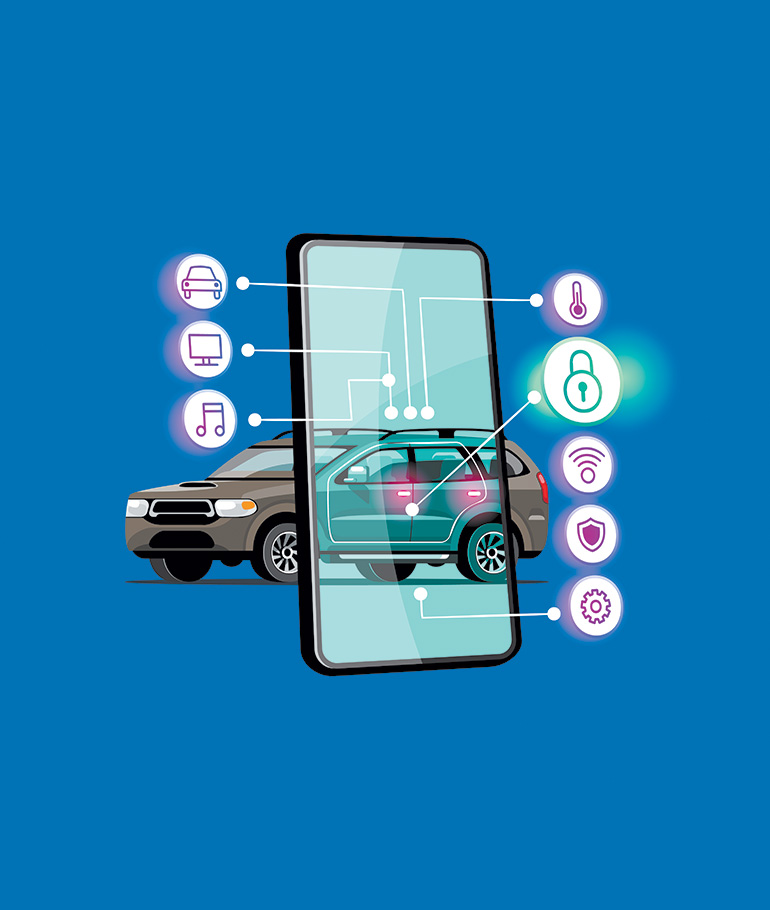Emerging ‘smart’ shifts in the automotive space

Cars are not just starting to become sustainable; they are also beginning to become “smart.”
Aside from the observation that automobiles are beginning their transition towards electric and low-carbon, as shown by hybrid models and the uptrend in electric vehicles (EVs), other growing developments in the automotive industry have to do with smart cars and smart manufacturing.
As market research company Market.US defined in its report on the global smart car market published last June, smart cars include those “equipped with advanced technologies like artificial intelligence (AI), connectivity, and autonomous driving.”
“Smart cars boast advanced features like sensors, cameras, navigation systems, and computing power that enable them to interact with their environment while making decisions based on real-time data. These capabilities allow smart cars to increase safety by decreasing accident chances,” the research firm further described.
Smart cars, the report added, feature advanced safety features. These include collision avoidance systems, lane departure warnings, adaptive cruise control, and emergency braking — all of which are designed to keep both driver and pedestrian safer on the road, and so reduce accidents and injuries.
Smart cars are also considered to be energy-efficient, improving fuel economy while cutting operating costs.
Market.US’ report highlighted that the global smart car market is growing rapidly. The report noted that in 2022, the global smart car market was valued at US$57.5 billion and will reach US$ 265.7 billion by 2032. An estimated compound annual growth rate of 17% is projected to be registered by the market between the two aforementioned years.
“The global smart car market is being driven by factors such as rising electric car adoption, safety features, and the growing trend toward connected vehicles. Furthermore, government initiatives and smart city infrastructure will further fuel this market growth,” the report added in an overview published on its website.
In particular, automotive technologies such as connectivity technologies, AI, sensors, and data analytics are credited to have played a substantial role in shaping the smart car market.
“Such advancements enable features like advanced driver assistance systems (ADAS), infotainment systems, autonomous driving capabilities, and vehicle-to-vehicle communication that have proven invaluable for consumers who own smart cars,” Market.US added.
The firm also noted that governments across the globe have introduced policies and regulations — such as include tax credits, subsidies, rebates for purchasing EVs, and stricter emission standards — to promote smart car adoption.
Another seen driver in smart car demand is the increasing consumer enthusiasm for advanced technologies and connected experiences.
“Features like infotainment systems, smartphone integration, voice control capabilities, and enhanced safety features have proven particularly popular with buyers who now favor these cars over traditional ones,” Market.US explained.
Despite these drivers, however, there may be restrains to growth, such as high cost; limited infrastructure; regulatory challenges, especially in controlling autonomous vehicles and in safety concerns; and limited consumer awareness, which can lead to hesitancy in investing in smart cars.
“Due to the advanced technology and benefits they give, smart cars are usually more costly than traditional vehicles. Many customers may find this price to be a major barrier to access, particularly in emerging nations where disposable incomes are smaller,” Market.US explained.
Moreover, infrastructure needed to support smart cars include electric vehicle refuel facilities, high-speed internet access, and dependable GPS systems. Without such infrastructure, the firm added, adoption of smart card might be limited, especially in in rural regions and emerging nations.
Here in the Philippines, cars are set to be made “smart” as PLDT and Toyota Motor Philippines (TMP) announced last April their partnership for intelligent car solutions.
Through its business-to-business solutions arm PLDT Enterprise, PLDT is powering TMP’s newest suite of connected services under mobile platform myTOYOTA Connect with Smart Internet of Things (IoT) eSIM solutions — the first of its kind to be rolled out in the country.
myTOYOTA Connect enables Toyota car owners and drivers to monitor their location, car condition and driver speed, among other features, through myTOYOTA app. myTOYOTA Connect service is ready for activation in the expanding lineup of select variants of Hilux, RAV4, Hiace and Fortuner models. Activation can be done through the myTOYOTA app.
TMP President Atsuhiro Okamoto said that this partnership brings them to their goal of making a “Connected, Automated, Shared, and Electrified mobility a reality to more and more Filipinos.”
Smart manufacturing
The “smart” trend is not just becoming evident in the industry’s products. It is also beginning to be encouraged in the production itself.
According to an article published in the website of business consulting firm Frost & Sullivan, the shift of automotive sales toward EVs, which drive as well demand for batteries for this kind of vehicle, is bringing the need for shifting to smart automotive manufacturing.
According to a Frost & Sullivan research paper titled “Global Electric Vehicle Battery Manufacturer Profiles and Growth Opportunities,” published last year, EV sales increased by more than 100% y-o-y, with nearly 6.7 million units sold, achieving 8.9% market penetration in the passenger car segment.
“70% of the 6.7 million EVs sold in 2021 were battery electric vehicles (BEVs). BEV sales increased from 2.1 million in 2020 to 4.5 million in 2021, reflecting an increase in battery demand and alerting established and new battery manufacturers to incoming demand,” the article read.
“As a result, everyone from mature automakers to startup EV companies, tire manufacturers, and battery manufacturers needs a new approach and must shift processes and technology to accelerate production, scale operations, and drive faster launches with less risk,” Frost & Sullivan wrote.
Furthermore, the firm highlighted that this kind of scenario should drive leaders to pay attention to “the potentially transformative role of smart automotive manufacturing to serve the changing market needs.”
“Such digitalization helps manage the constant technological changes and disruptions in the automotive space. It helps accelerate sustainable production and to get to market first and faster; make better, faster business decisions; reduce downtime; and improve quality and [overall equipment effectiveness] with integrated automation solutions,” the firm further explained.
An example of a smart manufacturing platform that can be used for automotive, as Frost & Sullivan presented, are cloud-based information technology/operational technology (IT/OT) platforms, which “break down silos, allow system consolidation, and unlock data across the enterprise.”
“With real-time data on manufacturing operations, organizations can identify inconsistencies and make corrections as needed. The end-to-end, wider, and deeper organizational visibility helps them to better understand day-to-day operations affecting the bottom line and allows more accurate, data-driven decisions,” Frost & Sullivan explained.
“A smart manufacturing platform with cloud connectivity allows users to connect from anywhere globally and such remote and secure access to production systems speeds up response time and enables timely decisions without requiring users to be on the plant floor. Customers can make decisions rapidly and more accurately using information and insights directly connected to the plant floor,” the article added.



